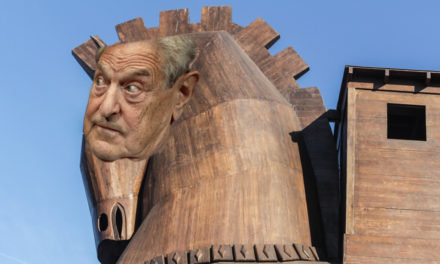The left's continuous trickery with billionaires is over, Fidesz will submit a bill next week regarding the rules for the financing of factions.
The left-wing parties practically split in order to have as many factions as possible and thus pocket as much money as possible. For example, the LMP inherited a seat from the DK due to a pact with Ferenc Gyurcsány, and it was only because of this that they were able to found a faction. Péter Jakab, the failed president of Jobbik, does not accidentally insist on the position of faction leader either: the big money is in the faction, not the party.
After the overwhelming election victory of Fidesz in April, it became clear what could have been guessed for a long time: the left started with a joint list only in order to maximize the trickery with money. A great example of this is the LMP, which can form its own faction not because of the will of the voters, but because Ferenc Gyurcsány's party ceded a seat to them, thus obtaining the five representatives needed to form a faction.
All in all, the old regulation meant that the left, which had only 57 representatives, was entitled to HUF 256 million per month,
which is also interesting because in the previous election cycle they had six more representatives in the parliament, but now they get 60 million more.
This is how it was possible that a left-wing representative received HUF 4.5 million in support per month, while a government party received only HUF 2.6 million.
Here it is worth remembering that the governing parties have 135 representatives, while the left has only 57.
However, thanks to Fidesz's bill planned for next week, this cycle the support of the left wing will decrease by 3 billion forints, and the support of the faction of the governing parties by 2 billion forints. As is well known, the parties have been running on budget money since 1990. In practice, this means that the parties receive HUF 2.5 billion annually, of which 25 percent was divided equally among the parliamentary parties, while the remaining 75 percent was based on the votes cast.
However, the way in which the factions are supported is significantly different, as they receive a much larger amount, approximately HUF 30 billion, every four years. Now, however, the distribution of money was extremely disproportionate, since, as Fidesz faction leader Máté Kocsis pointed out, the left-wing parties, which lost 800,000 voters since 2018, would have received 3 billion more in this cycle.
The war, the energy crisis and the risky policy of Brussels threaten the utility costs of households. Now the most important thing is that the Hungarians do not pay the price of the war, and the most important thing is to protect Hungarian families from runaway energy prices, which is why the government created an overhead protection fund. In our opinion, the parties must also contribute to this fund with at least the three billion forints that their parliamentary factions would cost more in the coming years
explained Máté Kocsis.
If, on the other hand, everything had remained as before, the operation of the parliament in the current cycle, i.e. between 2022 and 2026, would have cost a total of HUF 6 billion more, which is a lot of money in these times of war.
The essence of the trickery of the left was to create many small parties, they formed six factions in total, so obviously the amount of money also increases when the numbers are added up.
After the changes, however, the DK faction will get 9 instead of 21 million, Momentum 7.6 instead of 18 million, just like Jobbik and MSZP, since their faction is the same size as Momentum. Párbeszéd gets HUF 6 million instead of HUF 16 million, LMP, which was able to form a faction only because of Ferenc Gyurcsány, gets HUF 5.7 million instead of HUF 15 million, which is still HUF 5.7 million more than it needs.
The situation of Jobbik is particularly interesting, as the party is on the verge of dissolution, but since they were still able to found a faction in this cycle, they receive HUF 7.6 million per month. As is well known, there was a recent coup against Péter Jakab from Paris in the left-wing party, as a result of which he himself resigned on his social media a few hours before his inevitable replacement. Jakab, on the other hand, would receive HUF 3.6 million as the leader of the Jobbik faction. In addition, he would also decide on the distribution of budget funds, which is why he clings to the position tooth and nail.
Featured Image: Contra












